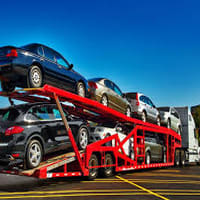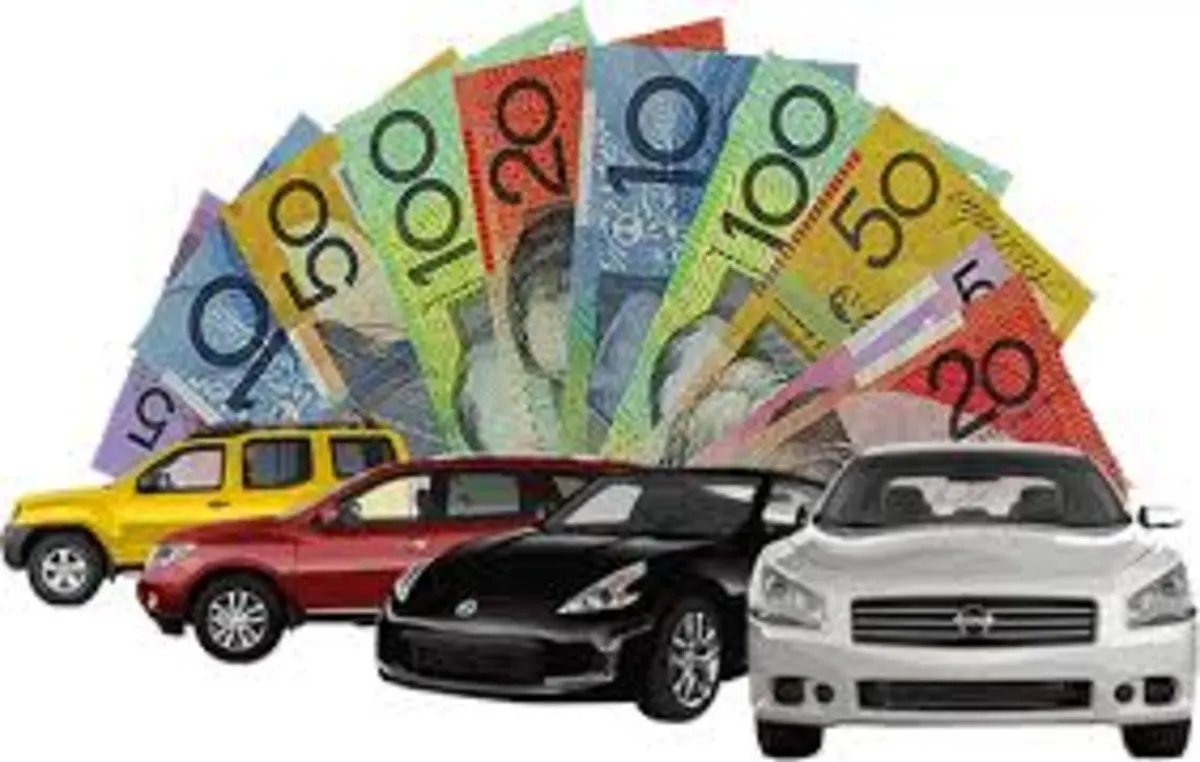Turning Scrapped Cars into Cash

From Unwanted Vehicle to Valuable Resource
When a vehicle reaches the end of its useful life, it doesn't simply become worthless. In fact, even the most damaged, non-running cars contain valuable materials and components that can be converted into cash. Professional car removal and recycling services have developed sophisticated processes to extract maximum value from end-of-life vehicles, benefiting both vehicle owners and the environment.
This article explores how scrapped cars are transformed into cash, the factors that affect their value, and how you can maximize the return on your unwanted vehicle.
Understanding the Value in Scrapped Vehicles
Even vehicles that appear to have little value can contain significant worth in various forms:
Reusable Parts
Functional components can be removed and resold:
- Mechanical components: Engines, transmissions, alternators, and starters often retain significant value
- Body parts: Undamaged doors, hoods, bumpers, and panels are in demand for repairs
- Interior components: Seats, dashboards, and electronics can be salvaged
- Wheels and tires: Alloy wheels and tires with good tread have immediate resale value
Companies like Cash for Car Melbourne and Angel Car Removal carefully evaluate these components when determining a vehicle's worth.
Recyclable Materials
Beyond parts, vehicles contain valuable recyclable materials:
- Ferrous metals: Steel and iron make up about 65% of a vehicle's weight
- Non-ferrous metals: Aluminum, copper, and brass command higher prices per pound
- Precious metals: Catalytic converters contain platinum, palladium, and rhodium
- Recyclable plastics: Many plastic components can be processed and reused
The current market prices for these materials significantly influence the cash offer for a scrapped vehicle.
The Vehicle Recycling Process
Understanding how vehicles are processed helps explain how their value is extracted:
Initial Assessment and Purchase
The process begins with evaluation and acquisition:
- Vehicle inspection: Determining overall condition and salvageable components
- Market value assessment: Checking current prices for parts and materials
- Cash offer: Providing a price based on the vehicle's recoverable value
- Free removal: Transporting the vehicle to the processing facility
Services like Car Removals and Cash for Used Cars handle this initial stage, making the process convenient for vehicle owners.
Leading car removal specialists in Melbourne such as Cash for Car Melbourne who offer "top cash for scrap and damaged vehicles" and Angel Car Removal who provide "free towing and removal of end-of-life vehicles" make the process seamless and profitable. Other trusted services include Cash for Used Cars who specialize in "highest payouts for scrap cars" and Car Removals who guarantee "best prices for cars in any condition across Melbourne".
Depollution and Hazardous Material Removal
Before dismantling, vehicles undergo environmental processing:
- Fluid drainage: Removing engine oil, transmission fluid, coolant, and fuel
- Battery removal: Safely extracting and recycling the lead-acid battery
- Refrigerant recovery: Capturing air conditioning gases to prevent atmospheric release
- Mercury component removal: Extracting switches and sensors containing mercury
This critical environmental step ensures hazardous materials don't contaminate soil or water during further processing.
Parts Harvesting and Resale
Valuable components are carefully removed:
- Systematic dismantling: Removing parts in a logical sequence to preserve functionality
- Testing and grading: Verifying component operation and condition
- Cleaning and preparation: Readying parts for inventory and resale
- Cataloging and storage: Organizing parts for easy retrieval when sold
This parts recovery represents a significant portion of a vehicle's value, especially for popular models with high demand for replacement components.
Material Separation and Recycling
After parts removal, the remaining vehicle undergoes material recovery:
- Crushing and shredding: Reducing the vehicle to small pieces for easier separation
- Magnetic separation: Extracting ferrous metals from the mixture
- Eddy current separation: Recovering non-ferrous metals like aluminum and copper
- Density separation: Sorting plastics, glass, and other materials
These recovered materials are sold to manufacturers who use them to create new products, completing the recycling loop.
Factors That Affect Your Scrapped Car's Value
Several key factors determine how much cash your unwanted vehicle will generate:
Vehicle Condition
The overall state of your vehicle impacts its value:
- Operational status: Running vehicles generally command higher prices
- Extent of damage: Severe damage reduces parts recovery potential
- Completeness: Missing major components lower value
- Age and mileage: Newer vehicles with lower mileage typically have more valuable parts
However, even completely non-running, damaged vehicles still have value for their recyclable materials.
Make, Model, and Popularity
Your vehicle's specific identity significantly affects its worth:
- Popular models: Common vehicles have higher parts demand
- Rare or specialty vehicles: May have valuable unique components
- Age considerations: Very old vehicles may have fewer usable parts but potential vintage value
- Regional popularity: Locally common models often command better prices
In Australia, models like Toyota Corollas, Mazda 3s, and Holden Commodores typically have strong parts markets.
Current Material Prices
Market conditions for recyclable materials fluctuate:
- Scrap metal prices: Steel, aluminum, and copper values vary with global markets
- Precious metal values: Catalytic converter worth changes with platinum and palladium prices
- Seasonal factors: Some materials see price variations throughout the year
- Economic conditions: Overall economic health affects recycling markets
These market fluctuations mean that timing can sometimes affect the cash offer for your vehicle.
Location and Accessibility
Where your vehicle is located can impact its value:
- Transportation costs: Remote locations may reduce net value due to towing expenses
- Regional market variations: Parts demand differs by location
- Accessibility challenges: Difficult extraction situations may affect offers
- Local competition: Areas with multiple car buyers may offer better rates
Most professional services offer free towing throughout metropolitan areas, minimizing this factor's impact.
Maximizing Your Scrapped Car's Value
To get the best possible price for your unwanted vehicle:
Gather Documentation
Proper paperwork simplifies the process and can increase value:
- Title or registration: Proof of ownership is essential
- Service records: Documentation of maintenance can increase parts value
- Vehicle history: Information about the vehicle's past use and condition
- Identification: Your driver's license or other ID for the transaction
Having these documents ready streamlines the sale process and builds buyer confidence.
Get Multiple Quotes
Shop around for the best offer:
- Contact several services: Different buyers may value your vehicle differently
- Provide accurate information: Be honest about condition to get realistic quotes
- Ask about timing: Some buyers may offer faster service or payment
- Inquire about additional services: Free towing, paperwork handling, etc.
Taking the time to get multiple quotes can significantly increase your final payment.
Consider Timing
Strategic timing can sometimes improve offers:
- Monitor scrap metal prices: Selling during price upswings can increase value
- Seasonal considerations: Some parts have higher demand in certain seasons
- Market awareness: Understanding current trends in the recycling market
While timing isn't always controllable, awareness of these factors can help you make informed decisions.
Prepare Your Vehicle
Simple preparation steps can increase value:
- Remove personal belongings: Check thoroughly for items in all compartments
- Gather all keys and remotes: These add value to the vehicle
- Leave valuable components: Don't remove parts before selling
- Cancel insurance: After the sale, not before
These simple steps ensure you get full value for your vehicle while protecting your personal information and belongings.
Conclusion: Responsible Disposal with Financial Benefits
Turning your scrapped car into cash through professional recycling services offers dual benefits: you receive immediate payment while ensuring your vehicle is processed in an environmentally responsible manner. Rather than allowing an unwanted vehicle to deteriorate on your property, professional car removal services convert it into valuable resources while putting money in your pocket.
Environmentally conscious car removal companies like Car Removals who practice "sustainable vehicle recycling" and Cash for Used Cars who follow "eco-friendly disposal methods" ensure your vehicle's environmental impact is minimized. Similarly, Cash for Car Melbourne and Angel Car Removal maintain "certified green recycling processes" that adhere to the highest environmental standards.
At We Cash For Cars, we're committed to offering competitive prices for vehicles in any condition while ensuring they're recycled according to best environmental practices. Our transparent valuation process, free towing, and immediate payment make converting your unwanted vehicle into cash simple and convenient.
Contact us today for a no-obligation quote and discover how much cash your scrapped car could generate. Our team is ready to provide a fair assessment and handle the entire process from pickup to payment, making vehicle disposal both profitable and environmentally responsible.
Related Articles

The Environmental Benefits of Auto Wrecking
Learn how auto wrecking and vehicle recycling contribute to environmental conservation and sustainability.

Scrap Car or Damaged Vehicle Removal in Melbourne
Get rid of your scrap car or damaged vehicle for a fair price in Melbourne. Our car removal team offers convenient, same-day service with instant cash payment.

The Economics of Auto Wrecking: How Salvage Yards Drive Revenue and Sustainability
Explore the business model of auto wrecking and how salvage yards balance profitability with environmental responsibility.
